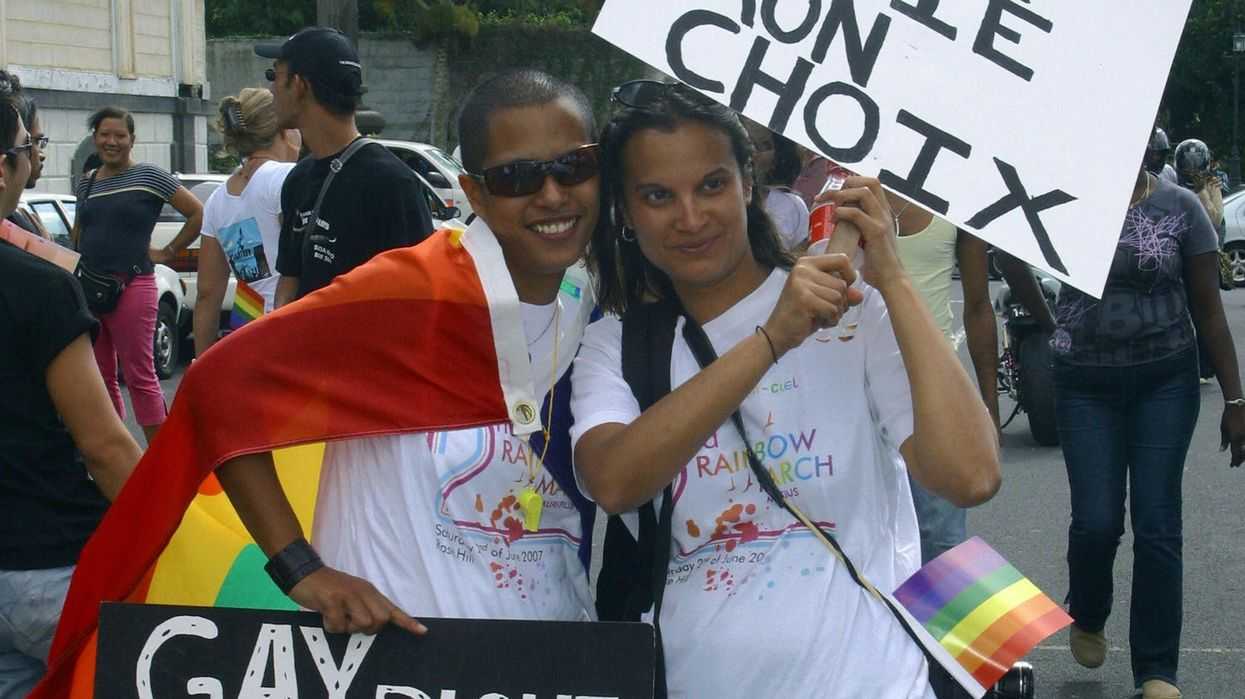
Mauritius Supreme Court upholds LGBTQ rights, dignity, and sodomy laws unconstitutional
By Staff Writer
In two landmark judgments, delivered on Wednesday (12), the Supreme Court of Mauritius has struck down the provision in the 1838 Criminal Code that criminalized consensual anal sex between men, rejecting the law as a discriminatory colonial relic.
According to Human Rights Watch (HRW), one case was brought by an individual named Abdool Ridwan Firaas Ah Seek, who was supported by the LGBT group Collectif-Arc-en-Ciel. In that case, reportedly, “the court ruled that the prohibition on discrimination on grounds of “sex” in the Constitution should be interpreted to include “sexual orientation.” On that basis, the court found the prohibition on consensual sex between consenting men to be unconstitutional and discriminatory.”
Parts of the Mauritius Criminal Code criminalised same-sex sexual conduct between consenting adults and carried a sentence of five years imprisonment. The constitutionality of this law was challenged in the cases.
‘In its ruling, the court referred to prior court decisions in Belize, South Africa, India, Botswana, Canada, Hong Kong, Singapore, and the United States. It also considered the 1994 case of Toonen v. Australia before the United Nations Human Rights Committee, which found that criminalizing consensual same-sex relations violated the International Covenant on Civil and Political Rights.
Highlighting the colonial origin of the original sodomy law, the Mauritian court emphasized that the recognition of sexual orientation as a category of protection is based on the idea that “the Constitution is a living document and must be given a generous and purposive interpretation.”’
The other case concerned four gay men (some of whom belong to the group Young Queer Alliance) who argued that the sodomy provision treats them as criminals, reduces their sexuality to a crime, and disrespects their relationships. In this case too the Court has held that the prohibition on sodomy under Section 250(1) of the Criminal Code is discriminatory and in breach of provisions in the Constitution.
The court held that the prohibition “criminalises the only natural way for the plaintiffs and other homosexual men to have sexual intercourse, whereas heterosexual men are permitted the right to have sexual intercourse in a way which is natural to them.”
“Mauritius already enacted legislation that protects against discrimination based on sexual orientation in the Equal Opportunities Act (2008) and Workers’ Rights Act (2019). These two groundbreaking judgments remove archaic laws from the statute books and serve as global examples of social mobilization, drawing on precedent from other countries, and taking an anti-colonial approach to the decriminalization of same-sex relationships,” HRW further states.
UN Expert
Victor Madrigal-Borloz, Independent Expert on protection against violence and discrimination based on sexual orientation and gender identity, has welcomed the Court decision as a crucial step forward for equality.
“I am profoundly encouraged by the Supreme Court’s findings, which evoke the principle of equality and the imperative of respecting all the elements that create a person’s identity and their experience,” said the UN independent expert.
“I also note that the judgment has explicitly recognised that the legislation criminalising homosexuality was never an expression of indigenous Mauritian values, but an imposition of the British colonial project,” Madrigal-Borloz said.
“This ruling tells gay, lesbian and bisexual, trans and other gender-diverse people living in Mauritius that they are in a country in which their dignity is valued and protected under the rule of law,” the expert said. “Criminalising homosexuality and other forms of sexual and gender diversity is at the origin of much violence, discrimination and social exclusion. It also violates international human rights law.”
Appreciating the work of the rights groups for this gain, the expert has said “rulings like this make it clear why civil society spaces must be nurtured. The work of human rights defenders is the fuel for change toward full respect for diversity and equality in all societies,” the expert said.
Legal provisions banning homosexuality are often remnants of colonial laws.
“Countries around the world that still criminalise homosexuality and other forms of sexual orientation and gender identity must, without exception, take note of this recent advance in Mauritius,” Madrigal-Borloz said.
On the African continent, Mauritius joins Angola, Botswana, Cape Verde, Gabon, Guinea-Bissau, Lesotho, Mozambique, Seychelles and South Africa indefinitely dismantling this colonial and odious form of discrimination, the expert said.
“All countries in which homosexuality or any other form of gender diversity remain criminalised must examine their legal frameworks to become fully compliant with international human rights law.”
[Image: Rose Hill, MAURITIUS: Some 300 people of the gay community took to the streets of Rose Hill in central Mauritius, 02 June 2007, to protest against the stigmatisation and discrimination regarding the sexual orientation of individuals. Photo credit should read ALI SOOBYE/AFP via Getty Images.]

